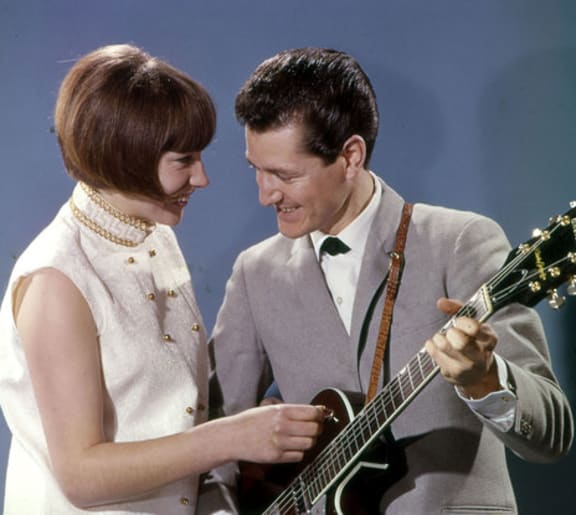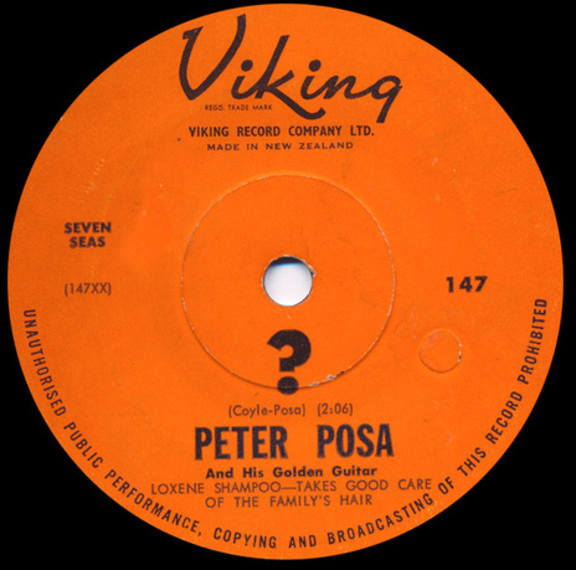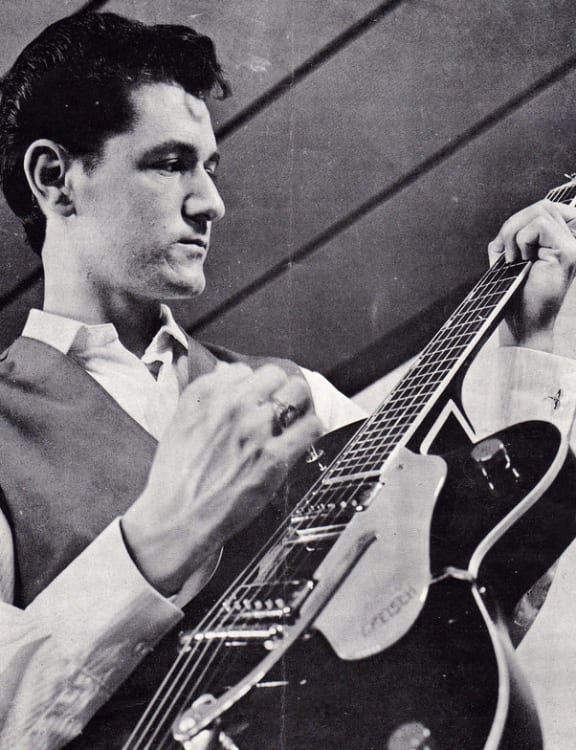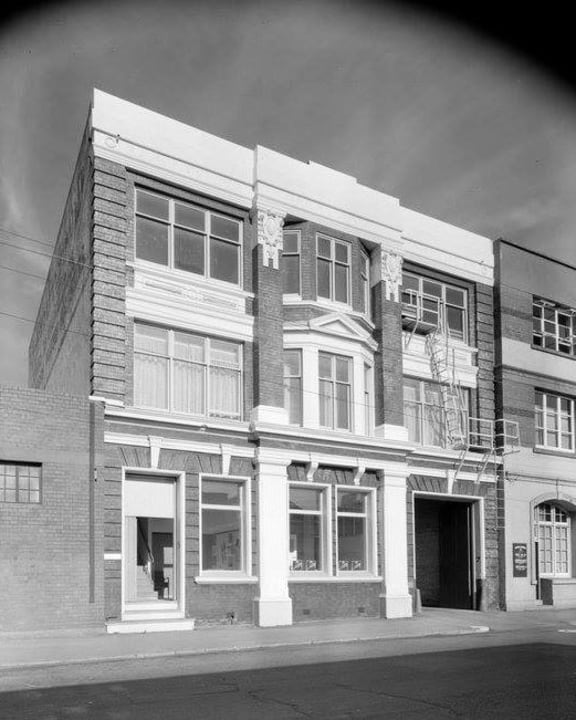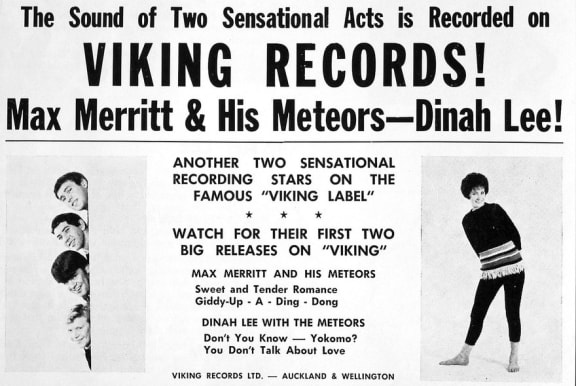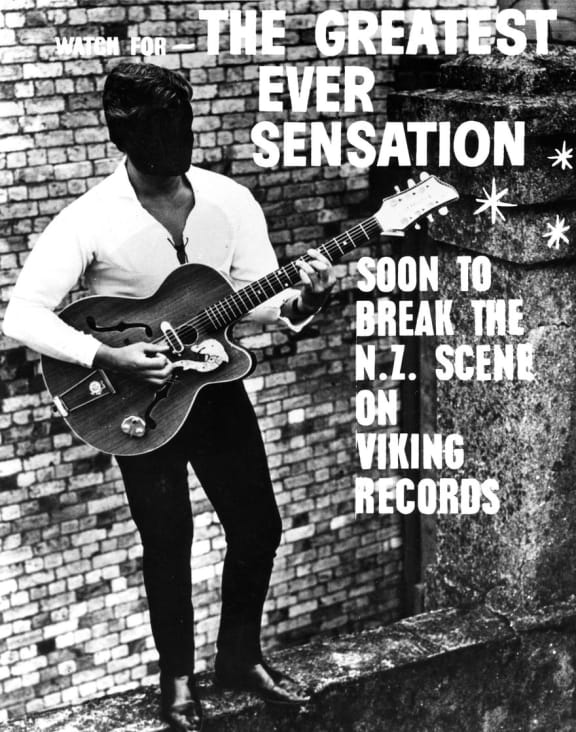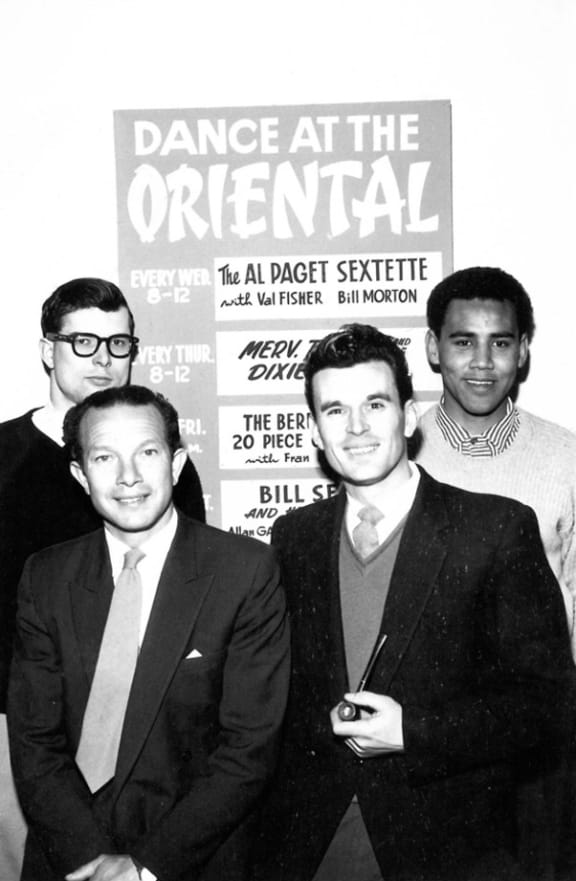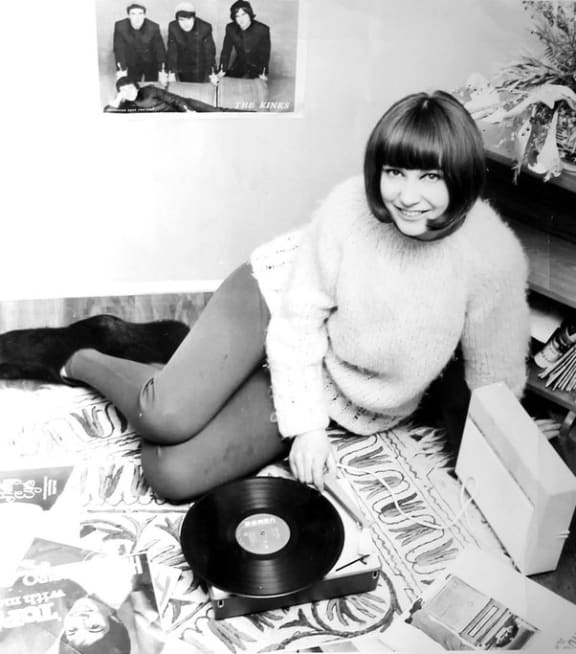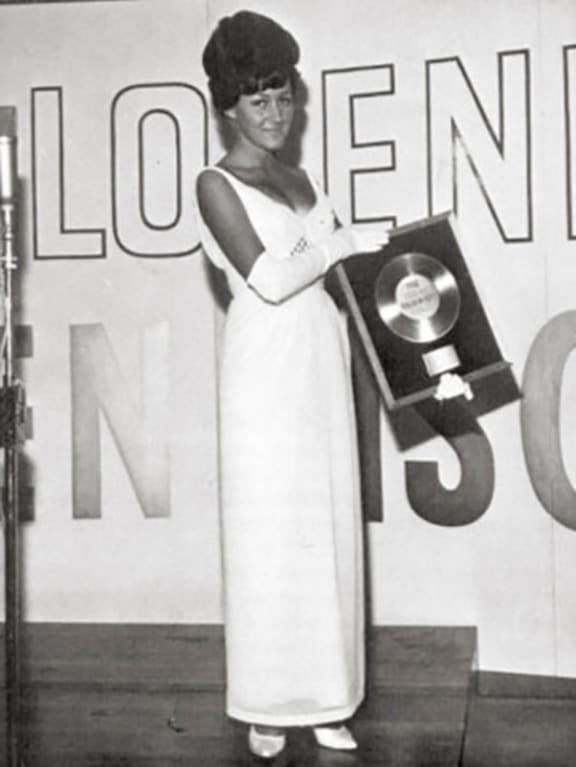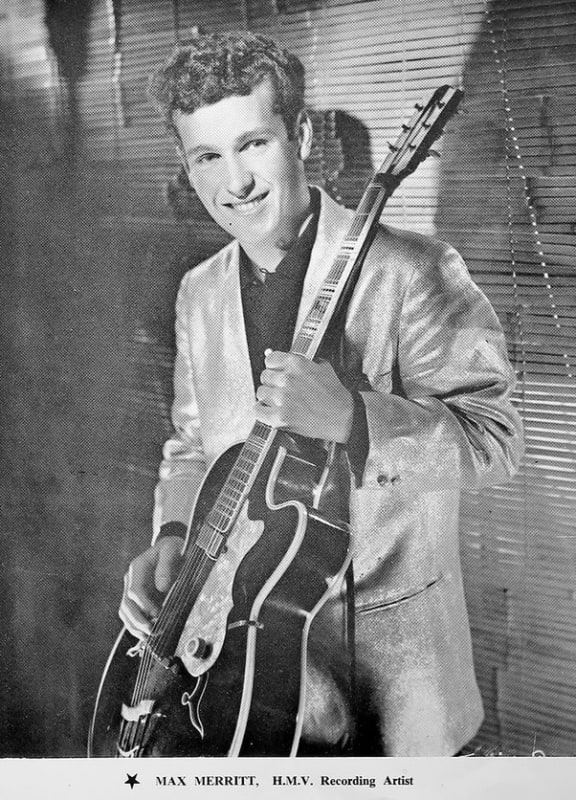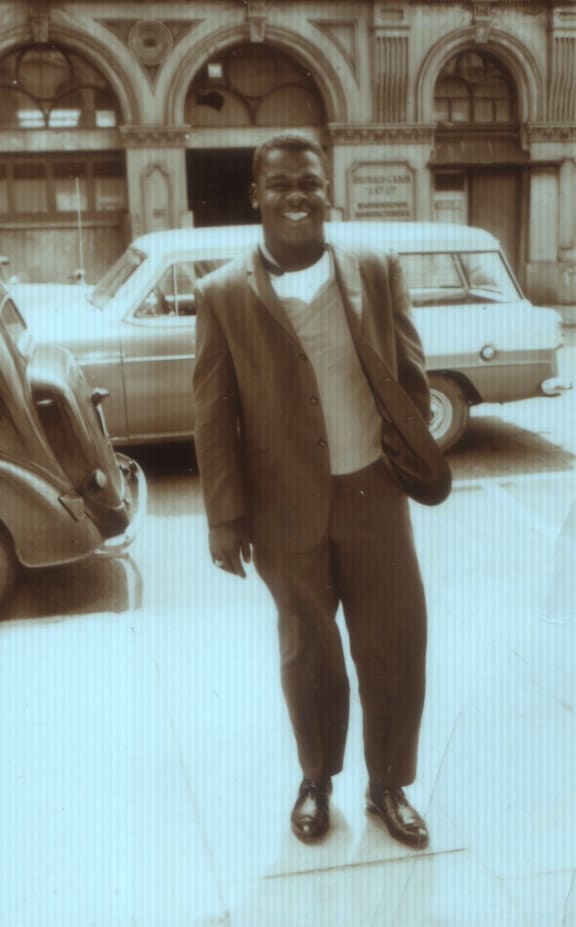Images courtesy Audioculture
Wellington-based Viking records was once New Zealand's largest independent record label. In its 1960s heyday it recorded some of New Zealand’s biggest local artists: Dinah Lee, Peter Posa, Maria Dallas, Herma Keil and The Chicks.
All of the company's back catalogue has now been donated to the National Library for digitisation and preservation for future generations.
Dr Michael Brown, music curator at the Turnbull Library and Viking director Murdoch Riley talk to Jesse Mulligan about the history of the label, and play some of the tunes.
The story of Viking Records
In the 1960s, Viking Records was the largest locally-owned record label in the South Pacific, with its head office in Wellington and a branch in Sydney. The label recorded an extensive range of Pacific music from New Zealand, Fiji, Tahiti, Tonga and Samoa, and it was the largest supplier of Pacific Island and Maori music in New Zealand.
Founder Murdoch Riley had a background in broadcasting. He was a Record Purchasing Officer and used to put together the Lever Hit Parade, New Zealand Radio's only regular half-hour pop show. He used the experience he gained at 2ZB when he started the record label up in about 1957.
Murdoch remembers: “When I was in 2ZB they had a programme of new releases and I put some of the Chess label – the Chuck Berry stuff and another one from the same label called Howlin’ Wolf – and I recall that the station manager got a call from head office saying ‘What on earth are you doing playing this on Sunday afternoon?’ I was always trying to push the envelope.
“It was the time when requests were put into radio stations from various songs and from that I learned what the public wanted and realised that if I ever went out on my own as I did eventually I would have some idea of what people were not able to find in records. But I suppose my other thing was to make sure that we created something new and different from what was coming in from overseas.”
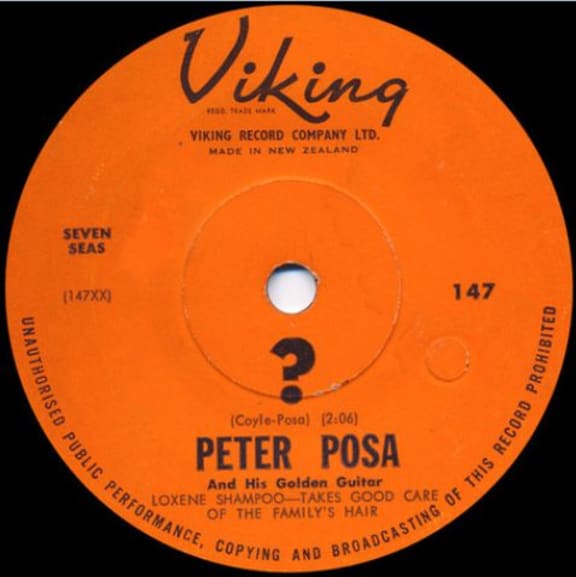
Photo: Courtesy AudioCulture
When it came to choosing a name for the fledgling company, Murdock and his business partners - record producer, the late Ron Dalton and Jim Staples who later became the company's man in Sydney - wanted the word ‘international’ in the title, but couldn't figure out a way to do it without it sounding clumsy. They had a number of names written down and worked down the list to letter V. Viking was chosen for the way it sounds. It helped that Murdoch's late wife was part Norwegian too.
It was challenging starting an independent record business because – much like now - the competition such as Capitol and HMV and Pye were big multi-national players. When the trio started Viking Records they had no import licence. Those were all owned by HMV (Now part of Universal Music), so they couldn't get tapes to record on to. This meant some early recordings had to be erased and the original master tapes reused, so some material has been lost.
The big companies where mainly interested in releasing overseas material which left a marketing niche for the smaller, locally owned companies such as Viking. The focus on Maori and Polynesian music followed on from Murdock’s earlier stint at the TANZA label, when he’d encouraged Bill Wolfgramm and Daphne Walker to build on the success of their 1954 hit 'Haere Mai (Everything is Kapai)' by recording more locally written songs, especially with Māori or Polynesian content. He was looking at the success of 'Blue Smoke' and thinking "let's see if we can duplicate something like that." Looking back, Murdoch concedes the lyrics could be a bit corny, but the melodies were good. And he knew how popular Hawaiian and country and western songs were on the radio request sessions. Working in this music genre gave Viking a good, safe base catalogue.
The very first Viking recording came out in October 1957. Little Darlin', an EP of rock and roll songs by Manawatu group The Q-Tees was recorded by 2ZA announcer Wally Chamberlain in 2ZA's Palmerston North studios. It sold 1,000 copies in its first 10 months. Shortly afterwards, the label released a 10-inch LP by Cole Wilson, lead singer of The Tumbleweeds. Country Songs, Vol 1 sold 2,000 copies in a year.
Ron Dalton, who handled A&R (Artist & Repertoire) out of Auckland got hold of a shortwave radio so he could tune in to American hit parades and see what was selling. A big success came with 'The Twist', after local radio stations decided not to play Chubby Checker's original because it was too raw. Viking recorded The Keil Isles performing the song, which got plenty of radio play just as the Twist craze took hold, and their version became the local hit.
Most of the other local music labels at the time were Auckland based; Eldred Stebbing’s Zodiac records, Phil Warren's Prestige and Harry M Millar who owned La Gloria. Viking had an advantage with it Wellington base, because all the record pressing plants were there. A disadvantage was HMV’s ownership of the recording studio, meaning all Viking’s Wellington recordings had to be done by hiring HMV's studio when they weren't using it. The HMV boss was a Seventh Day Adventist, which meant the studio couldn't be used on Sundays.
They got around this problem by doing a lot of location recording, for instance traveling to Fiji to record some local music using battery-powered equipment because there was no power available. Only trouble was, the batteries were untested and they were worried they might run out before the recording was complete. They just got through but then the village chief demanded to hear the recording and they couldn't oblige.
Viking eventually got an import licence and was able to release some overseas material in New Zealand, after Murdoch Riley and Ron Dalton went to the States and signed up to distribute Reprise Records (owned by Frank Sinatra) and Roulette Records (reputedly owned by the mafia) in New Zealand. Murdoch is unsure who owned Roulette but he does recall that they never made a penny on that deal.
Ron Dalton had a technical rather than musical background, but he had good instincts for choosing the right song and contracting the right musicians. For a period Viking also owned Mascot recording studio in Auckland, run by engineer Bruce Barton. With successes such as Peter Posa's 'The White Rabbit' in 1963 and 'Blue Beat' the following year, then releases by Lou and Simon and Garner Wayne, the company was not so reliant on its distribution of overseas labels. That enabled Murdoch to expand the number of Polynesian releases, which sold well in the islands.
Some of the New Zealand pop artists did well overseas too. Peter Posa was released through W&G records in the USA and by a Decca records subsidiary in the UK. He had a point of difference with his pioneering recording technique, which involved playing his guitar into a tape loop system which had 5 or 6 playback heads, producing a multi-layered sound effect on the notes. White Rabbit, written by Aucklanders, Bill Ivory and Graham Rosling, was Peter Posa’s big hit.
Other high profile acts on Viking include Waimate-born Dinah Lee’s first hit, recorded back in 1964 was ‘Don't You Know Yockomo’ was released on Viking. Dinah Lee sold well in South Africa and went top 10 in Australia. The Chicks, Sue and Judy Donaldson, who started their career at Viking with songs produced by Ron Dalton. They went on to have a very long career thanks to exposure on the TV pop show C'Mon. There was also Maria Dallas, Max Merritt and His Meteors, Herma Keil and Jae Epae. Howard Morrison also released some material through Viking after parting ways with Harry M Millars La Gloria.
Outside of the pop mainstream Viking’s biggest hit was a song which almost didn't happen. Crombie Murdoch wrote 'Opo the Crazy Dolphin' dedicated to a dolphin that greeted holiday makers at Opononi in the far north. Pat McMinn was recruited to sing it. Unfortunately, just as the disc was about to be released, Opo died in mysterious circumstances. The nation was in mourning and Murdoch was reluctant to exploit that. In the end he was persuaded it was the right thing to do and the song was huge.
What happened to Viking?
In the late 60s, Ron Dalton left to manage artists. Murdoch became more interested in book and music publishing, especially on Māori topics. Seven Seas was the name of Viking's publishing wing.
The company opened offices in Australia and Britain, distributed discs that included Latin-American artists, Chess R&B and even, for a brief period when they held the Elektra account, The Doors.
At their peak, Viking was releasing 30 different records a month, but even in the late 60s the industry was changing very quickly. Most international labels were picked up by the big multi-nationals and most records were being released internationally on the same day, so it was hard to get a jump on the others.
Viking had one last, huge commercial success with the theme to the 1974 Commonwealth games in Christchurch, when popular entertainer, Steve Allen (real Name Allan Stephenson) won a song writing contest to create a theme song for the games. He had already released material through Viking, but 'Join Together' was his biggest hit, and a huge one for Viking.
The original recordings made by Viking in the late 50s to late 70s have all been donated to the National Library by Murdock Riley for digitisation and preservation. It's a very valuable collection which includes not only some big pop stars of the day but one of the largest collection of Maori and Polynesian music too. This includes unreleased material and that which has been out of the public gaze for some time. The Alexander Turnbull Library is charged with preserving New Zealand history and there is a great deal of it in the Viking Catalogue.
